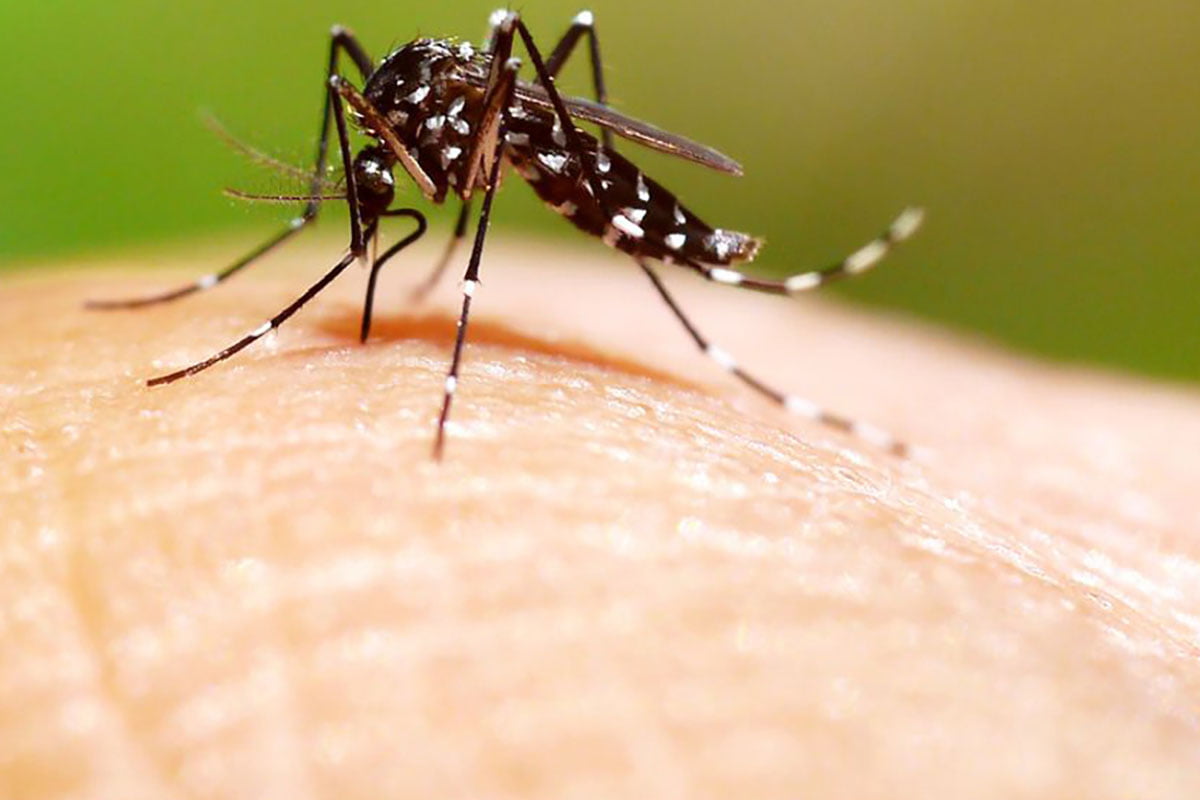Tropical Insect-Borne Infections
Malaria
Malaria primarily affects forest goers in rural areas. Since there has been massive deforestation in the last twenty years, the risk has decreased significantly, and with effective control measures, this has resulted in no reported deaths from malaria in 2018. Malaria is not present in the towns because of the absence of the vector mosquito Anopheles dirus which only lives in forests. Because the flight range of Anopheles is less than a mile, malarial areas are extremely focal, so local advice is needed. Non drug measures to prevent malaria are very important; use bed nets, preferably impregnated with synthetic pyrethroid insecticide, wear light-coloured clothing which covers arms, legs, ankles and feet, using insect repellent on exposed skin, burn mosquito coils or use knockdown insecticide spray, and sleep in an air-conditioned room or directly under a fan. Avoid perfumes that not surprisingly attract the female mosquito. As most people can be expected to follow these measures rigidly for up to 2 weeks, prophylactic anti-malarial drugs are not recommended for visitors staying less than 2 weeks in a malaria zone and are certainly not recommended for visitors going to the cities like Phnom Penh.
The most important advice after prevention is awareness. Any fever occurring more than 7 days after leaving a malaria area, regardless of whether an anti-malarial drug has been taken or not, could be malaria. A high fever for more than 48 hours should prompt a blood test for malaria; the risk of death rises considerably if treatment is delayed after the fourth day. This clinic can perform a rapid test for malaria.
Since 50% of malaria drugs sold in Cambodian pharmacies are fake, and because multi-drug resistance is spreading, treatment is advised only in a reputable hospital. Artemisinin-based combination therapy (ACT), such as DHA-PPQ, is the first-line treatment.
2024: the WHO recommends the R21/Matrix-M vaccine for the prevention of malaria in children.
Dengue Fever
Dengue fever is common in urban areas of Cambodia and therefore foreign tourists are at risk. It is transmitted by Aedes aegypti, a mosquito which bites during the day and early evening. As the vector larvae live in the water containers (jars, flower pots) around houses, water in those should be emptied at least once a week. Peak incidence is in the rainy season. Symptoms include severe headache, muscle pains, and rashes. Dengue haemorrhagic fever rarely develops in the foreigner. This clinic can do rapid tests for the detection of dengue.
Dengvaxia vaccine is only licensed for children and adolescents aged 9-16 with laboratory confirmed evidence of previous dengue infection (CDC, USA: 2024). It is not recommended in adults over age of 16.
Patients should be wary of clinics promoting dengue vaccines to adults, or trying to give unregistered vaccines. In January 2024 the Cambodian Ministry of Health correctly advised the public against receiving the Qdenga dengue vaccine.
Japanese Encephalitis
This is an infection of the central nervous system caused by a virus transmitted to man through the evening bite of a mosquito that lives in rice fields. Pigs are the normal host, but when the population of mosquitoes is high, as in the rainy season, epidemics in humans can occur. This disease is generally regarded as rural, and the risk factor is approximately 1 to 1.5 per 1000 to 5000 – with children most at risk. The majority of people bitten and infected never develop any illness; it is estimated that for every 100 persons infected, only one will develop the overt disease; however, this person has a high risk of dying or being left with permanent brain damage. 30,000 – 50,000 cases are reported in Asia every year of which 30% die.
Scrub typhus / Flea – borne typhus
Rickettsial infection spread by a mite of chigger or flea; primarily a disease of wild rats, present in scrub or grasslands. Doxycycline, taken for malaria prophylaxis, also prevents typhus.
Plague
Very rare now; limited to small isolated areas. Disease transmitted by the rat flea.

Health Care Problems - Advice from Dr Scott
Get the latest medical advice and tips on how to stay healthy in Cambodia from Dr Gavin Scott.

Air-Borne Infections
Air-borne infections can be difficult to avoid. Learn how to treat common colds, influenza and other infections in Cambodia.

Sexual Diseases
Get the latest information on sexually transmitted diseases in Cambodia, how to avoid them and how to treat them.

Tropical Insect-Borne Infections
What are they in Cambodia, and what vaccinations and treatments are available in 2024.
